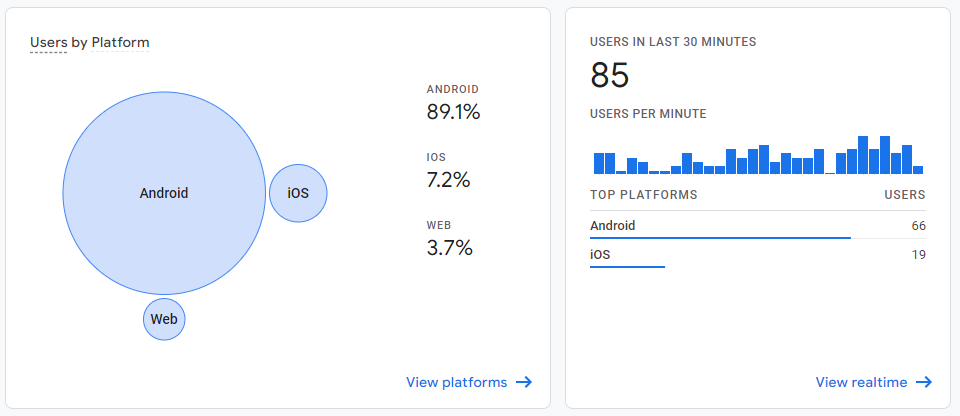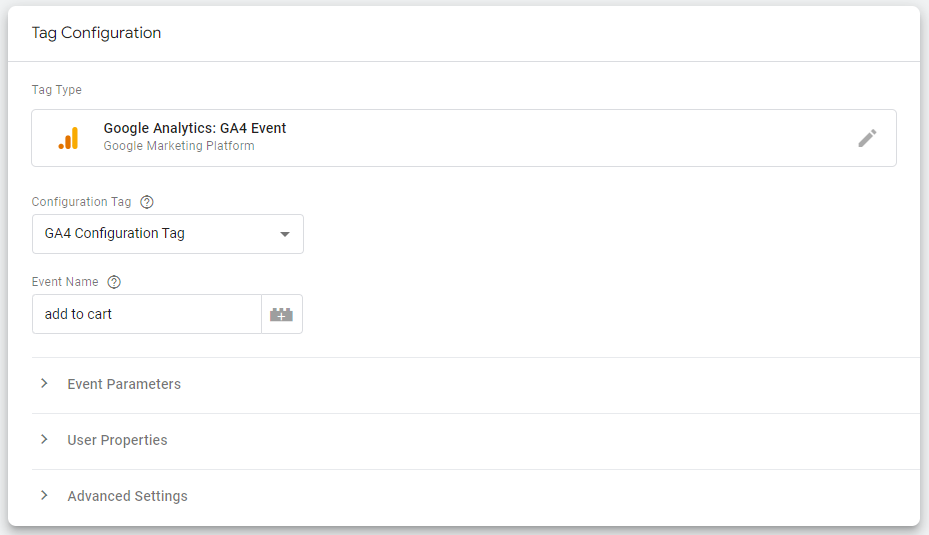
If you have a website, you probably use Google Analytics to measure where your traffic comes from and how users behave on your site. Google is in the middle of a seismic shift as they update their version of Google Analytics from Universal Analytics to Google Analytics 4. This is a major change for anyone who utilizes this crucial web analytics tool. There are lots of good reasons to upgrade from Universal Analytics (UA) to Google Analytics 4 (GA4). We’ll cover five of them in this blog.
1. Tracking For Web And Mobile Data Streams In One Platform
When Universal Analytics first came out in 2012, we were living in a world where most web interactions happened on computers. While smartphones had been a part of daily life for a few years at this point, they hadn’t quite dominated the Internet like they do today. For many of us, most of our time on the Internet is spent on mobile devices, accessing websites and information on mobile screens or through mobile apps. This creates an issue for a lot of businesses that have both a website and mobile app presence. Tools like Google Firebase and the Google Analytics App + Web property helped somewhat, but it was still awkward to consolidate mobile app data with website usage data.
Streamlining of web and mobile app data is probably the most important innovation that Google Analytics 4 offers. Instead of a single source of data (the Universal Analytics tag), Google Analytics 4 tracks data via an individual stream for each source. The three stream types include web, iOS app, and Android app.

Data comes in from each of these streams, and is consolidated in your GA4 reporting. Now, you can view reports that include your web users and your app users in the same place!

2. Event-Based Hits
This reason gets a little more technical. In Universal Analytics, a “hit” (a user action on your site) could be one of a few different types. Common hit types include page tracking, event tracking, ecommerce, and social interactions. Each of these hits were tracked a little differently, and required a different type of setup.
Google Analytics 4 streamlines this process by making every hit event-based. This means that instead of creating different types of tags for each type of hit, you just need to create the same kind of event tag for every user interaction you want to track. Google Tag Manager makes this tracking even easier. There’s a standardized Google Analytics 4 event template that makes tracking user interactions simple.

3. Some Events Are Tracked By Default
Google Analytics 4 even tracks many common events by default, which means you don’t even have to set up a tag for them. Common user actions like file downloads, in-app purchases, and video starts required that you set up tracking in Universal Analytics if you wanted to measure them. In GA4, all of these actions and more are tracked by default. For a full list of automatically-collected events in GA4, check out this article.
4. Better Privacy Controls
User privacy legislation like the General Data Protection Regulation (GDPR) and the California Consumer Privacy Act (CCPA) are indicative of greater scrutiny of how companies utilize user data. These are some of the first pieces of legislation around this issue, but they certainly won’t be the last. To help companies adhere to these regulations and to protect against future legislation, GA4 incorporates greater privacy controls into it’s system.
The most significant shift toward privacy in GA4 is that user IP anonymization is enabled by default, and it cannot be disabled. Universal Analytics did allow the option to anonymize IPs, but an analytics admin could disable this setting.
Data retention limits are also stricter in GA4. In Universal Analytics, you could set user data to indefinite expiration. In GA4, user data can be retained for 2 months or 14 months, but 14 months is the maximum allowed.
These privacy controls may seem like they are limiting to website owners and advertisers, but the sacrifice is minimal. Google has stated that machine learning should replace any gaps in data created by this focus on user privacy. It’s important to remember that this privacy focus is coming from outside pressure. Users and governments are both demanding stricter privacy controls, so Google needs to adapt or discontinue their web analytics service. By compromising and meeting user privacy needs with innovation, Google is creating a better experience for both users and companies.
5. Universal Analytics Is Being Discontinued
The most obvious reason that you need to upgrade to Google Analytics 4 is the fact that Universal Analytics is being discontinued. Starting on July 1st, 2023, Universal Analytics properties will no longer process data. You can still access old reports for a time, but you won’t be able to collect new data. If you’re using Google Analytics 360, you get a slight extension to October 1st, 2023 before your UA property stops processing data. Either way, you need to have an action plan on how you’re going to migrate your existing UA properties over to GA4.
It’s important to get started on this as soon as possible. Google Analytics properties only start processing data after their setup date, and you can’t import historical data into a new property. By setting up GA4 today, you’ll have a span of time where you’ll have access to both UA and GA4 data. That way, you’ll have plenty of time to verify your tracking is consistent before the GA4 switchover.
Conclusion
Google Analytics 4 will be the new paradigm for Google Analytics, and you need to be ready. RSM has been working with several of our clients to prepare them for the switch. If you need some help upgrading to Google Analytics 4, RSM would love to work with you. Just fill out this form to get in touch with us.
For more information on upgrading to Google Analytics 4, check out our video here.

 RSMUS.com
RSMUS.com